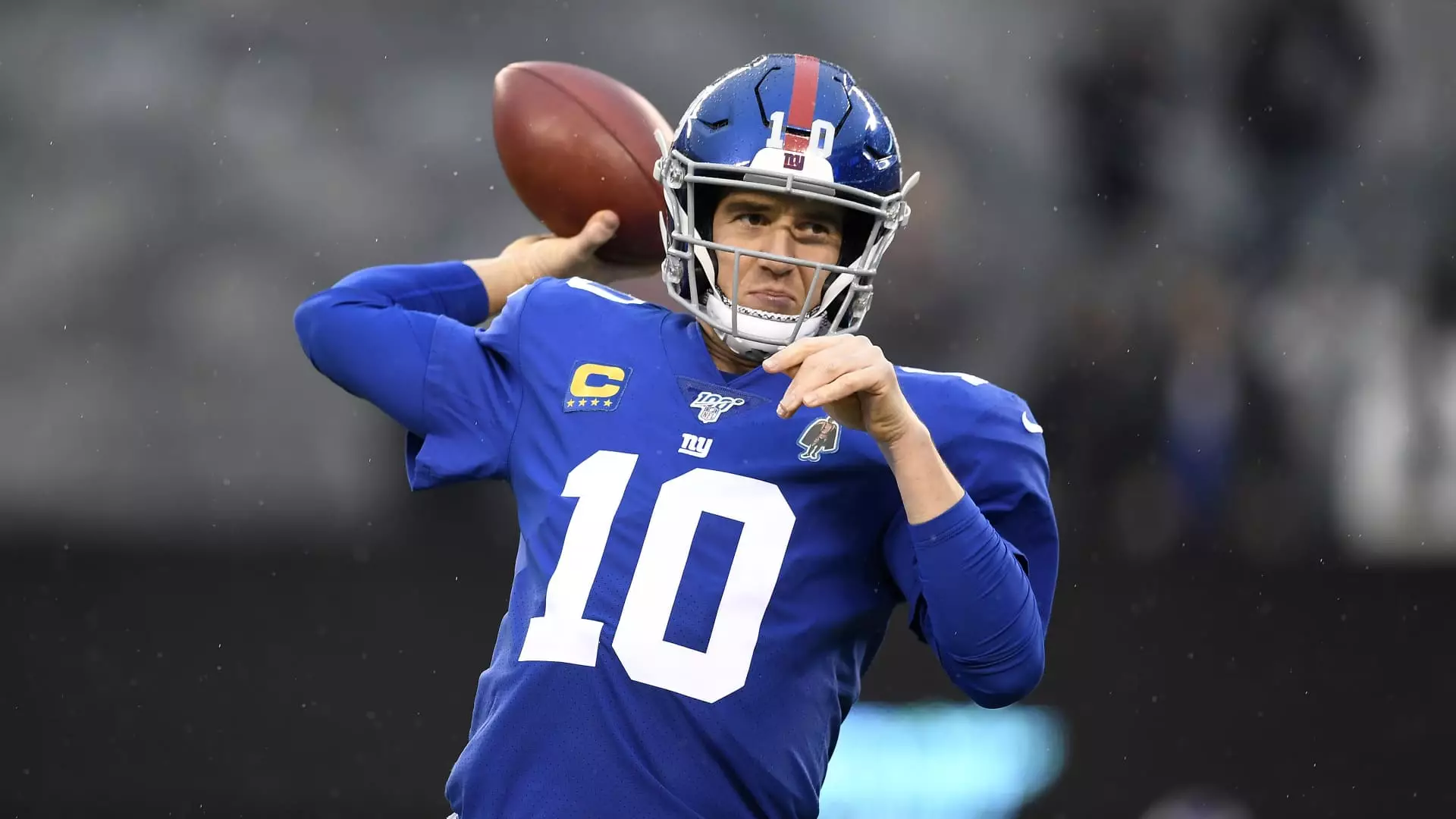Eli Manning’s candid admission that he cannot justify purchasing a stake in the New York Giants despite his legendary status and substantial wealth reveals a harsh new reality for aspiring NFL owners. What once might have been within reach for a former star athlete now seems prohibitively expensive. Manning’s comment—”A 1% stake valued at $10 billion turns into a very big number”—highlights the stark disconnect between perceived value and actual affordability. This stark contrast uncovers a broader trend: the exponential rise in NFL franchise valuations has effectively priced out even wealthy former players, transforming ownership from a dream of attainable prestige into an exclusive club reserved for the ultra-rich.
The inflation in team values isn’t an isolated phenomenon but a symptom of a rapidly appreciating sports franchise marketplace driven by lucrative broadcasting rights, corporate sponsorships, and expanding global audiences. As CNBC’s valuations demonstrate, the Giants, Eagles, 49ers, and even NBA’s Lakers are valued in the multi-billion-dollar range, making even a small ownership stake a significant financial commitment. Manning’s stance underscores how the burgeoning valuation landscape is molding a new class of owners, one that is often beyond the reach of former athletes who lack the deep pockets or the willingness to commit such astronomical sums.
Valuations Rising Faster Than the Average Wealth of Even Elite Athletes
Manning’s decision not to pursue a minority interest reflects a combination of genuine financial restraint and a recognition of the rapidly increasing valuations that now dominate the sports franchise ecosystem. The fact that the Eagles sold a minority stake at an $8.3 billion valuation just months before the Giants’ valuation was pegged at $7.85 billion signals a fundamental shift—owning even a sliver of an NFL team now costs billions. This trend inflates the barrier to entry, discouraging even well-off former players who might have considered a move into ownership as a post-retirement venture.
More telling is Manning’s outright declaration that he believes the Giants are worth $10 billion, aligning himself with the high-end valuations but refraining from entering the fray. It demonstrates that, while he respects the team’s true market value, he recognizes that such assets are increasingly monopolized by global investors, private equity firms, and billionaires eager to capitalize on sports’ lucrative growth. For many NFL stars, this is a wake-up call: ownership in the league is less about legacy and more about access to insatiable wealth pools.
Implications for the Future of NFL Ownership and its Social Dynamics
The NFL’s opening to private equity firms—allowing stakes of up to 10%—further commodifies team ownership and shifts the league’s ownership demographics toward financiers and tech billionaires rather than sports veterans or local entrepreneurs. As CNBC reports, bidders like Julia Koch and Marc Lasry demonstrate that the interest in NFL stakes now comes from the financial elite, not former players seeking to stay connected to the sport they helped build.
Manning’s own involvement remains significant, but his reluctance to buy through traditional routes signals an evolving landscape where sports teams become increasingly symbols of wealth management rather than community or legacy investments. His comments about conflicts of interest with his media commitments and the prohibitive costs highlight how even high-profile former players face the structural barriers created by skyrocketing valuations.
This dynamic isn’t merely a reflection of growing markets but a strategic shift that privileges established wealth and institutional investors over passionate sports figures. For center-right perspectives—those that value free-market policies and encourage entrepreneurship—this trend isn’t necessarily concerning but a sign that sports franchises are now treated like global commodities, where market forces determine access and ownership stakes. It signals a rational, if ruthless, evolution where ownership is a measure of wealth and influence, not just legacy or community ties.
Manning’s stance, therefore, might be viewed as a pragmatic acknowledgment that the league’s wealth concentration has moved well beyond the reach of many athletes and local investors, reinforcing the perception of NFL franchises as symbols of elite financial power rather than accessible community assets. This underscores a broader societal shift: sports are becoming more exclusive, tailored for the elite, and less about the sport’s roots or the athletes who made it popular.

